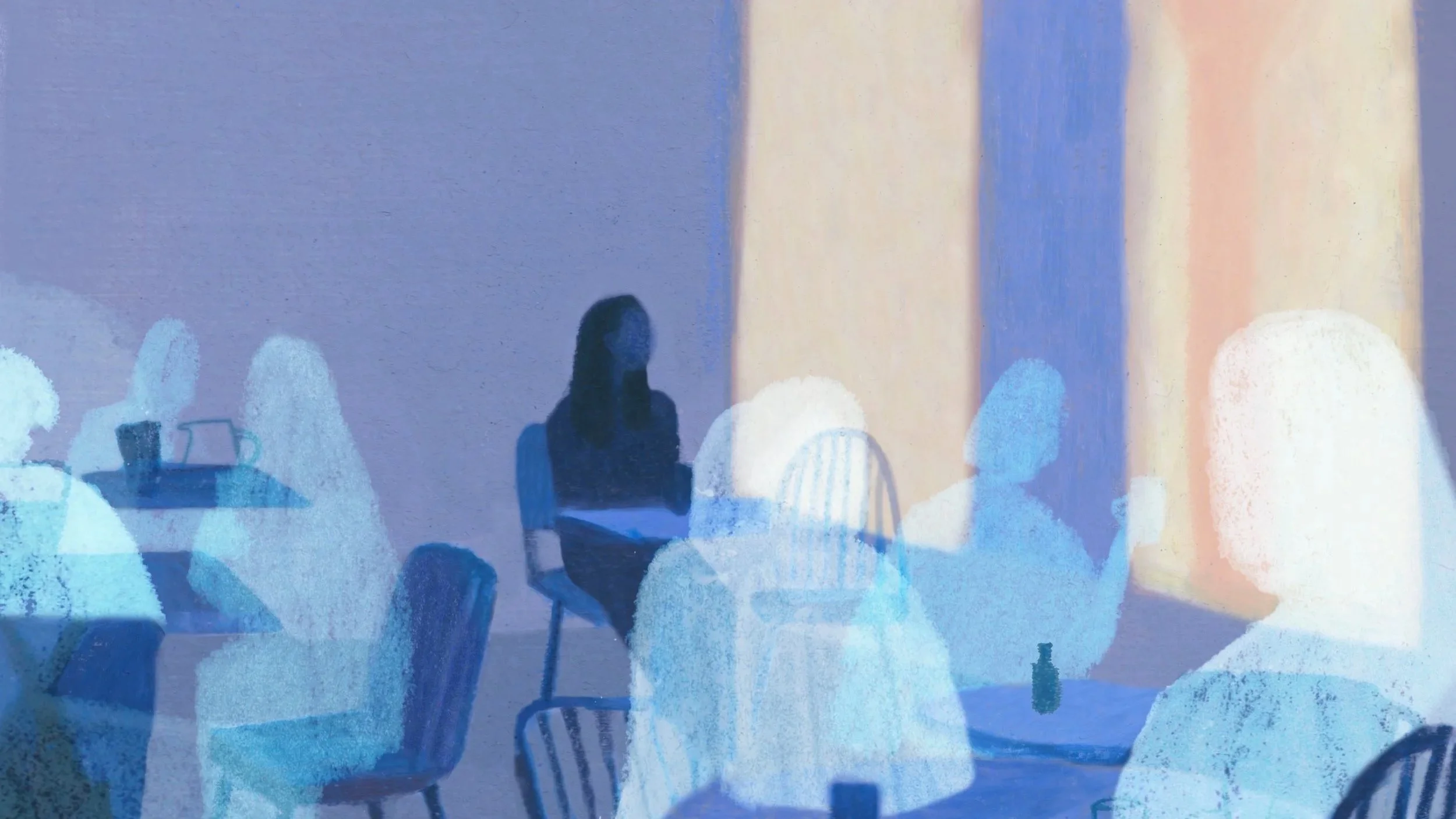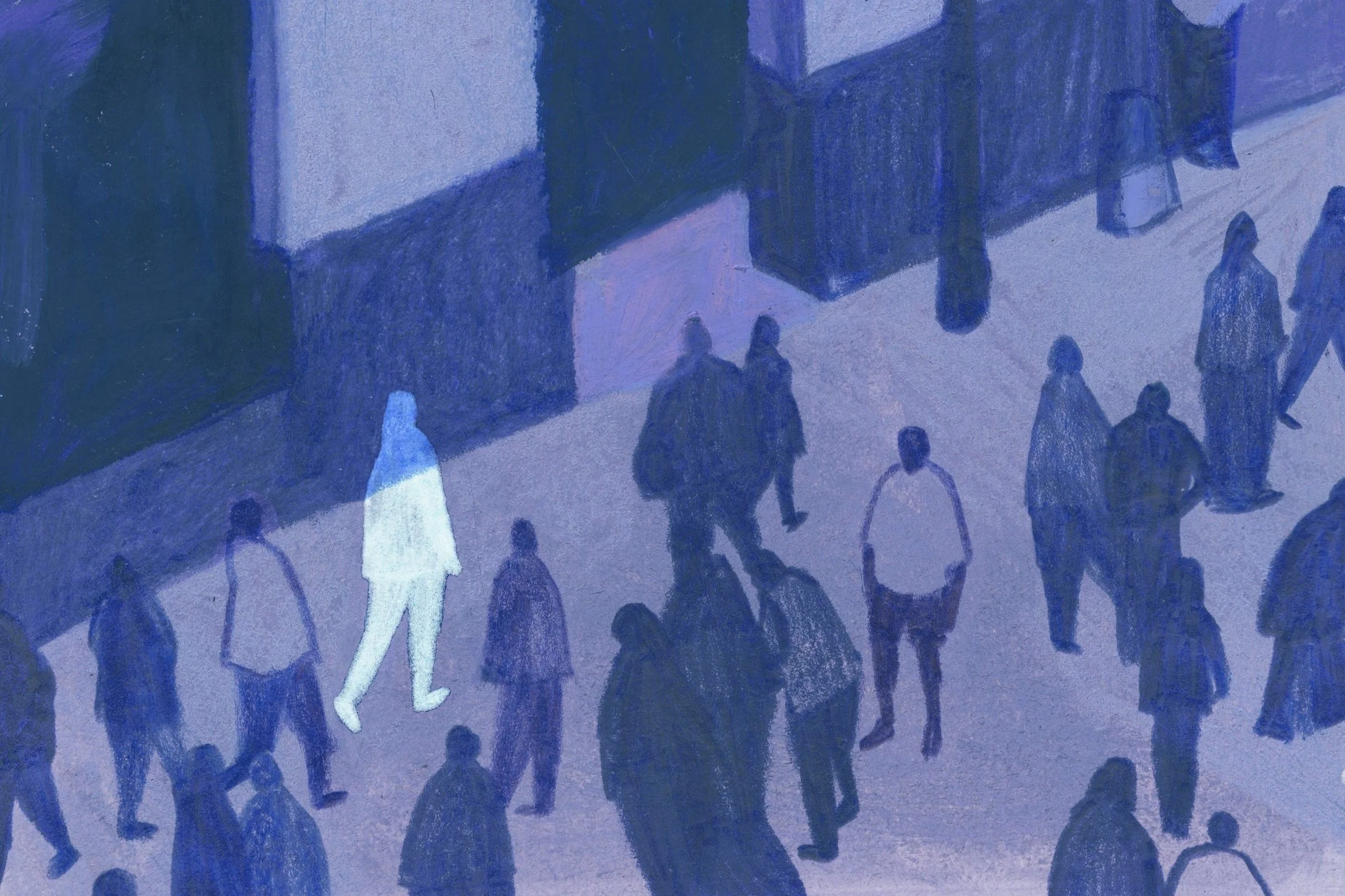What is DPDR?
-
Dissociation is something many of us will experience at some point in our lives. It can happen for lots of different reasons such as:
going through a very stressful time
experiencing something traumatic
feeling overwhelmed by strong emotions
living with anxiety or another mental health condition
For some people, dissociation becomes more intense or long-lasting. If this happens, it might be part of a dissociative disorder, where symptoms are more frequent, long episodes can occur, or the experience feels constant. There are different types of dissociative disorder and it’s important to remember that you could have the symptoms of dissociation without a dissociative disorder.
-
Depersonalisation and Derealisation are two common types of dissociation (which is an umbrella term).
Depersonalisation is when you feel disconnected from yourself — like you're watching yourself from the outside or not fully in your body.
Derealisation is when the world around you feels strange, dreamlike, or unreal — like you’re not fully part of it.
These feelings can happen on their own or at the same time. They often come and go, but for some people they last longer or feel more intense.
-
Lots of people will feel Depersonalisation and/or Derealisation at some point, especially during stressful times — like after a loss or a shock. It’s also a common part of a panic attack and can show up alongside other mental health conditions, or even some physical health issues like migraines or certain types of epilepsy.
But for some people, these symptoms can become a condition in its own right. This is called having Depersonalisation-Derealisation Disorder (DPDR). You might hear the condition referred to as DPDR, DDD or DPRD.
It means the symptoms are:
Strong and distressing (or “clinically significant”)
Not better explained by something else
Interfere with everyday life
DPDR as a disorder is more common than many people think. It’s estimated to affect over 1% of UK adults. That's about the same number as other better-known conditions like Obsessive-Compulsive Disorder or schizophrenia.
-
Living with DPDR can be difficult, especially if the symptoms are intense or ongoing. It’s common to feel scared, confused, or alone, especially if you don’t have a name for what you’re experiencing.
Some people have short episodes that come and go over a few hours, days, or weeks. Others experience longer or more frequent episodes. A small number of people feel symptoms almost constantly, sometimes for months or years at a time.
You might find yourself:
feeling emotionally numb or disconnected from the people around you
worrying that you're going mad or losing touch with reality
struggling to remember things or concentrate
feeling detached from your thoughts, memories, or identity
finding everyday activities harder to manage
These feelings can be frightening and overwhelming. You might feel like no one else understands what you're going through but you’re not alone and support is available.
Learn more
In this video Dr Emma Černis and Dr Elaine Hunter, Clinical Psychologists answer some of your most frequently asked questions.
Depersonalisation
With depersonalisation you might feel ‘cut off’ from yourself and your body, or like you are living in a dream. You may feel emotionally numb, feel distanced from memories or the things happening around you. It may feel like you are watching yourself live. The experience of depersonalisation can be very difficult to put into words with individuals experiencing it often having to rely on metaphors. It is often referred to as the “as if” condition. You might say things like ‘I feel like I don’t exist anymore’ or ‘It’s as if I’m watching my life from behind glass’. Some people describe feeling like their body parts are not their own, or they do not recognise themselves in the mirror.
Derealisation
If you have derealisation you might feel cut off from the world around you, other people and your surroundings. You might feel that things around you don’t feel real. They might seem foggy or lifeless, and objects may appear to be too close or too far away. You may find that familiar surroundings feel surreal or unfamiliar.
Getting Help
This booklet was written for young people experiencing dissociation.
It was written in 2025 by a team combining research knowledge, clinical expertise, and lived experience from the University of Birmingham (Emma Černis, Gwynnevere Suter, Eleanor Sinfield), Unreal (Gwendalyn Webb, Joe Perkins), and the McPin Foundation (Roya Kamvar). The content and tone were directed by an advisory group of young people with lived experience of dissociation and/or depersonalisation (Emma McShane, Lowenna, and Betty Ewens). Thank you to Jodie Howard for kindly granting permission to use her illustrations, and to the University of Birmingham for funding this work.
To get in touch, make suggestions for future versions, or to order copies for your service – please see ‘Tell us what YOU think’ at the very end of the booklet.
Grounding
In this video Dr Elaine Hunter, Clinical Psychologist, talks about grounding; what it is; and how you can practice these skills.
Publications








